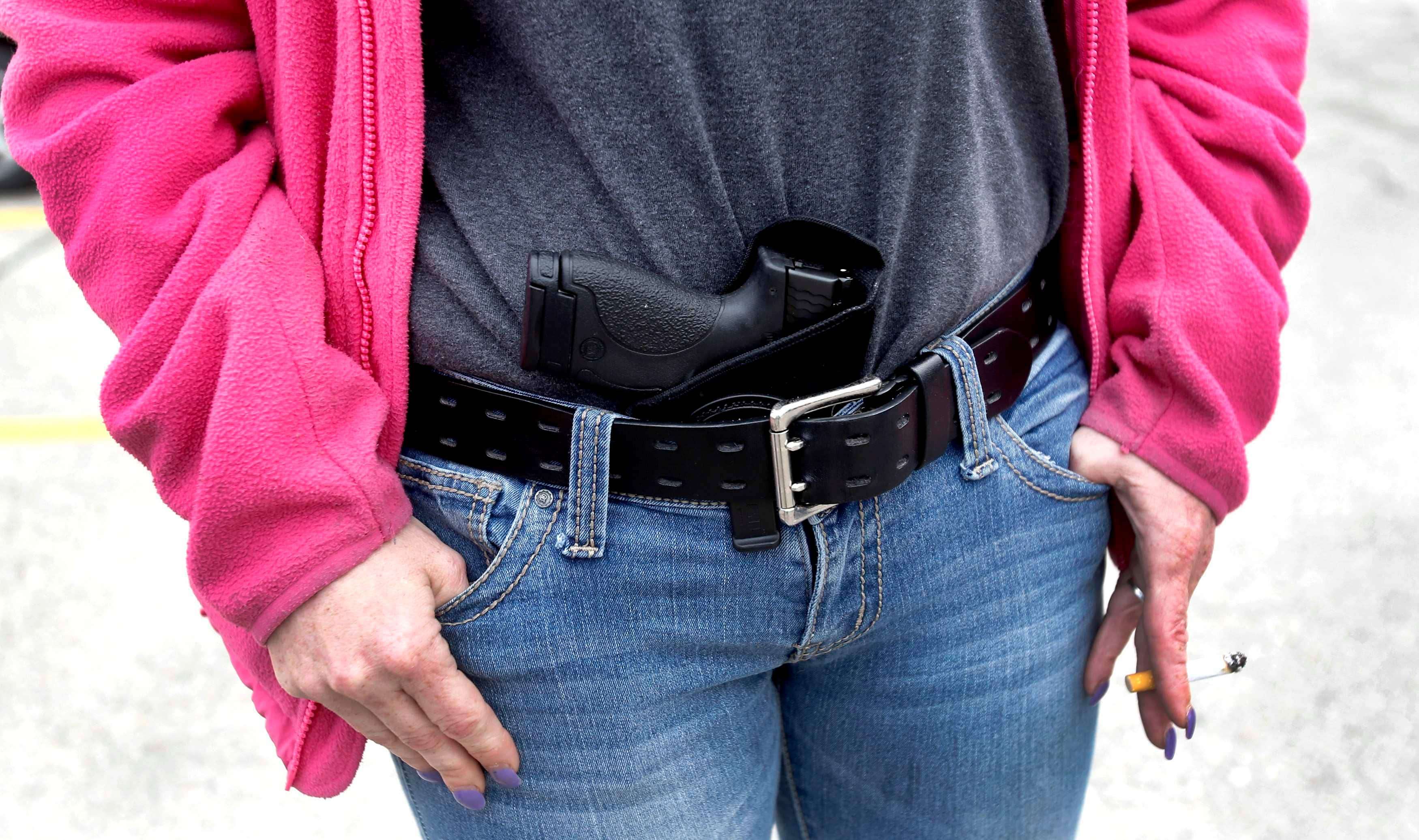The Volokh Conspiracy
Mostly law professors | Sometimes contrarian | Often libertarian | Always independent
If you openly carry a gun, don't do it while loudly singing Hakuna Matata

From yesterday's federal trial court decision in Deffert v. Moe (W.D. Mich.), which held that the police didn't violate the Fourth Amendment by briefly but coercively stopping Johann Deffert, who was openly carrying a gun (and whose actions ultimately proved to be lawful):
Plaintiff was walking in a residential neighborhood across the street from a church in service on a Sunday morning. He was wearing camouflage pants and an FNP-45 Tactical pistol secured in a leg holster, with a TLR-2 rail mounted tactical light with a laser sight attached to the pistol…. Plaintiff's appearance and behavior, which included singing "Hakuna Matata" loudly enough to be heard from a police cruiser, was sufficiently alarming to a resident to call 911. Officer Moe, an officer with then 23 years' policing experience, responded to the 911 call, observed Plaintiff and attested that he thought Plaintiff "may have had mental issues and was about to commit a violent crime." Officer Moe knew that Michigan law prohibits issuance of a firearms license to a person who is subject to an order of involuntary hospitalization due to mental illness, or an order of legal incapacity due to mental illness.
Again, Plaintiff's subjective perspective of the circumstances is irrelevant to the [Fourth Amendment] stop analysis…. Plaintiff repeatedly emphasizes that carrying his firearm on a public sidewalk is legal, assigning no significance to his location outside a church in service, the conspicuous placement of his firearm in a low leg tactical holster, the tactical light with laser mounted on his firearm, his military clothing, his loud singing of a song from a children's movie, or the resulting concerns of at least one person leaving church. Likewise, it is not the role of this Court to subjectively weigh a police officer's options and "dictate the precise methods of investigation to be pursued by police officers. Indeed, '[a] creative judge engaged in post hoc evaluation of police conduct can almost always imagine some alternative means by which the objectives of the police might have been accomplished,' but this would require us to 'indulge in unrealistic second-guessing.'" Cf. Baker v. Smiscik, 49 F. Supp. 3d 489, 498 (E.D. Mich. 2014) (opining that to prevent the "recurrent tragedies triggered by gun violence in public spaces, … police are properly given sufficient freedom of action to investigate circumstances that reasonably suggest an immediate risk to officer or public safety").
The Court determines that under the totality of the circumstances, Officer Moe had reasonable suspicion to stop and only briefly detain Plaintiff. See Northrup v. City of Toledo Police Dep't (6th Cir. 2015) (citing [Embody v. Ward (6th Cir. 2012)] as support for the proposition that an officer may be justified in seizing a plaintiff who appears to not be legally carrying a gun). Further, given the risk to the officer or others posed by a loaded weapon, Officer Moe's decision to first disarm Plaintiff was a prudent and objectively reasonable decision. Last, Officer Moe diligently pursued a means of investigation likely to quickly confirm or dispel his suspicions, to wit: detaining Plaintiff for a total of only thirteen minutes to run the LEIN [Law Enforcement Information Network] check…. Defendant officers here are also entitled to judgment as a matter of law on Plaintiff's § 1983 claim for a violation of the Fourth Amendment.
For more on how the Sixth Circuit handles such cases, see here and here.


Show Comments (0)